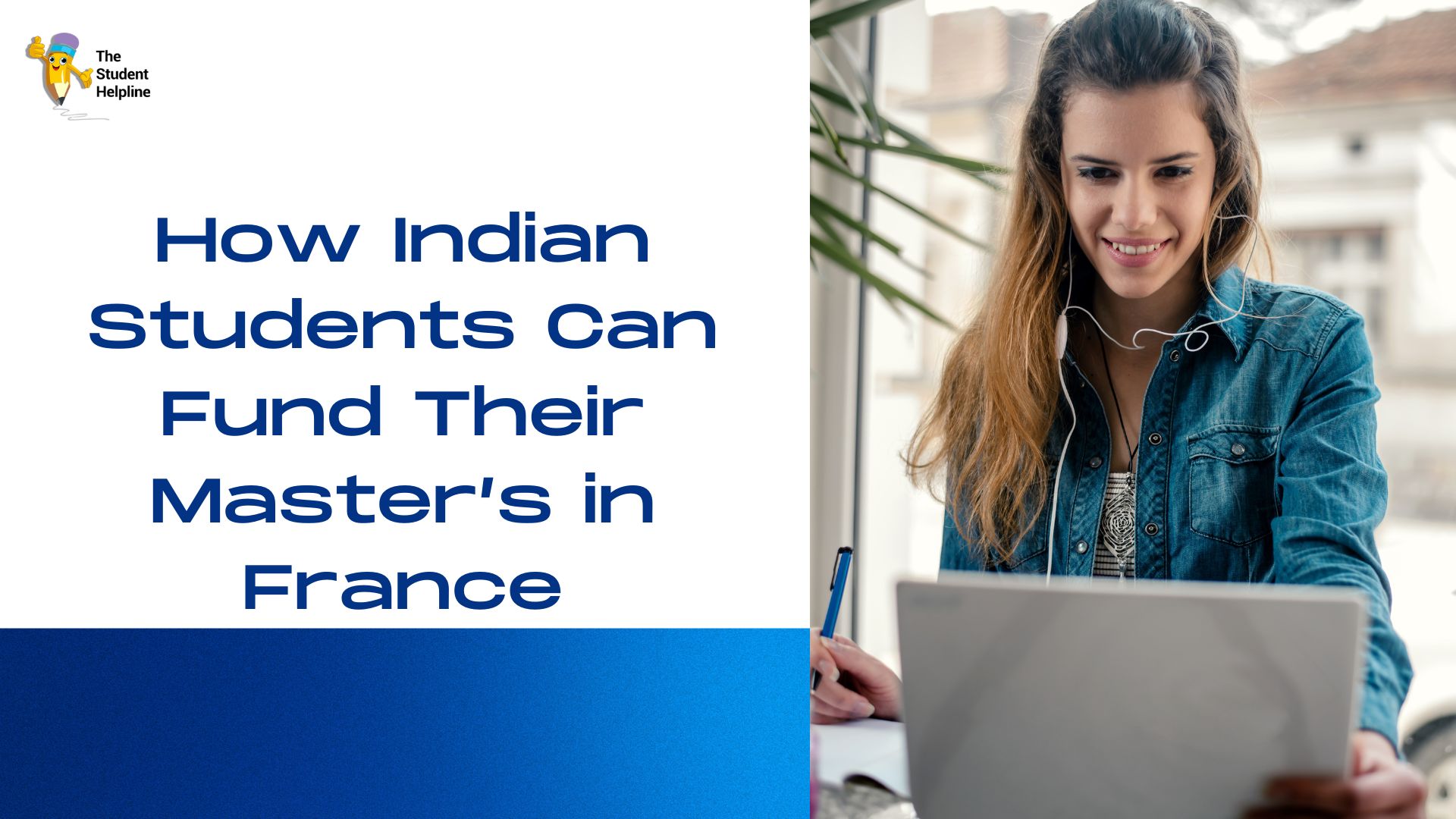
Pursuing higher education abroad is a dream for many Indian students, and France has emerged as a top destination for academic excellence and cultural exposure. With renowned universities, affordable tuition fees, and opportunities for career growth, a Master’s in France for Indian students offers a compelling package. However, financing this dream requires careful planning and exploration of available options. Here’s a comprehensive guide to funding your MS in France or other master’s programs as an Indian student.
1. Understanding Tuition Fees and Living Costs in France
Before diving into funding options, it’s essential to estimate the overall cost of pursuing a master’s in France:
-
Tuition Fees: Public universities in France charge relatively low tuition fees, often ranging from €170 to €380 per year for master’s programs. Private institutions may charge higher fees, typically between €5,000 and €20,000 annually.
-
Living Costs: Monthly living expenses, including accommodation, food, transportation, and leisure, range from €800 to €1,200 depending on the city. Paris is generally more expensive compared to smaller cities like Lyon, Toulouse, or Grenoble.
2. Scholarships for Indian Students
Several scholarships are available to help Indian students fund their masters in France:
-
Eiffel Excellence Scholarship: Offered by the French Ministry for Europe and Foreign Affairs, this scholarship covers a monthly allowance, tuition fees, international travel, and health insurance. It is highly competitive and aimed at top-performing students.
-
Charpak Scholarship: Exclusively for Indian students, the Charpak program offers funding for tuition fees, living expenses, and travel costs. It has three categories: Research Internship, Exchange Program, and Master’s Program.
-
Emile Boutmy Scholarship: Awarded by Sciences Po to international students, this scholarship offers financial support based on academic merit and socio-economic conditions.
-
Erasmus+ Scholarships: These are available for students enrolled in joint master’s programs across European countries. They typically cover tuition fees and provide a monthly stipend.
-
Campus France Scholarships: Managed by Campus France India, these scholarships, such as Raman-Charpak and UGAM Legrand, are tailored for Indian students pursuing higher education in France.
3. Education Loans
Education loans are a popular option for funding an Masters in France. Indian banks and financial institutions offer student loans with flexible repayment terms:
-
Public Sector Banks: State Bank of India, Bank of Baroda, and Punjab National Bank offer education loans with attractive interest rates, often starting from 8% per annum. They cover tuition fees, travel costs, and living expenses.
-
Private Banks and NBFCs: HDFC Credila and Axis Bank provide loans with faster processing times and customized plans.
-
Loan Repayment Post-Graduation: Most loans offer a moratorium period, allowing students to start repayment after completing their studies.
4. Part-Time Work Opportunities
France allows international students to work part-time while pursuing their master’s degree. Key points include:
-
Working Hours: Students can work up to 964 hours per year, approximately 20 hours per week.
-
Minimum Wage: The minimum hourly wage in France (SMIC) is around €11. This can significantly help cover daily expenses.
-
Job Types: Part-time opportunities range from on-campus jobs to roles in retail, hospitality, and tutoring.
5. Assistantship Programs
Many universities in France offer assistantship programs for master’s students. These positions allow students to assist professors with research, teaching, or administrative tasks. In return, they receive a stipend or tuition fee waiver.
6. Crowdfunding and Sponsorships
Crowdfunding platforms like Ketto and GoFundMe can help students raise funds for their education. Additionally, reaching out to Indian or French organizations for sponsorship can be a viable option. Highlighting your academic achievements and future goals can strengthen your case.
7. French Government and Regional Grants
The French government and regional authorities offer additional grants to international students:
-
Regional Scholarships: Various regions in France, such as Île-de-France and Auvergne-Rhône-Alpes, provide scholarships to attract international talent.
-
Social Aid for Students (CROUS): Managed by regional CROUS offices, these grants are based on financial need and academic performance.
8. Internship and Co-op Programs
Internship opportunities are an integral part of many master’s programs in France. These internships provide students with practical experience while earning a stipend. Some programs even incorporate co-op options, allowing students to alternate between studying and working full-time.
9. Tax Benefits and Reimbursements
Students working part-time or on internships in France may benefit from tax rebates. Understanding the French tax system and filing annual tax returns can help recover a portion of withheld taxes, providing additional financial relief.
10. Networking with Alumni and Student Groups
Networking with Indian alumni who have pursued an MS in France can provide insights into managing finances effectively. Student groups and associations, such as the Indian Students in France Association (ISFA), often share information about funding opportunities and part-time job openings.
Conclusion
Funding a master’s in France for Indian students is a manageable task with the right resources and planning. Leveraging scholarships, education loans, part-time work, and government grants can ease financial burdens and allow you to focus on academics and personal growth. France’s commitment to fostering international talent, coupled with its world-class education system, makes it an ideal destination for Indian students to achieve their academic and career aspirations.
Begin your journey today and unlock the endless possibilities that a Masters in France offers!






Leave a Reply